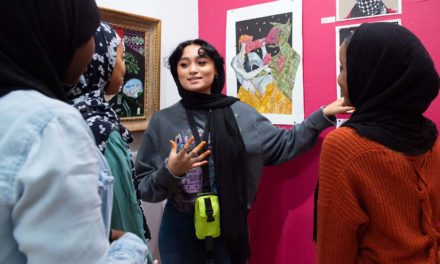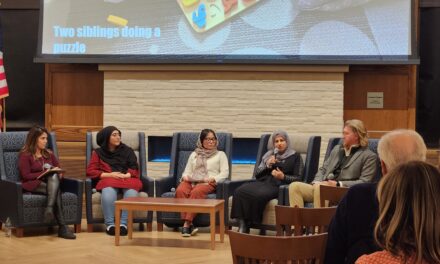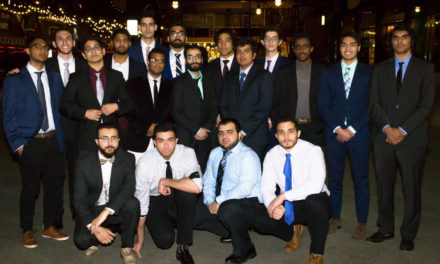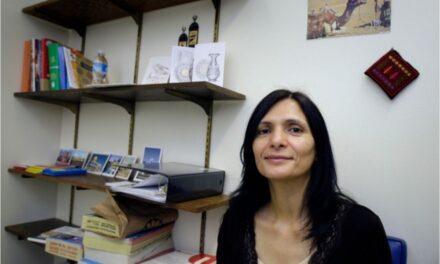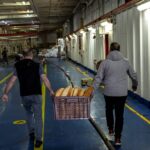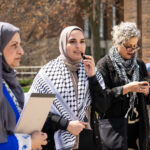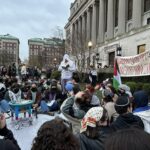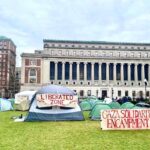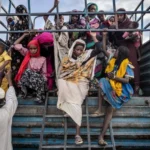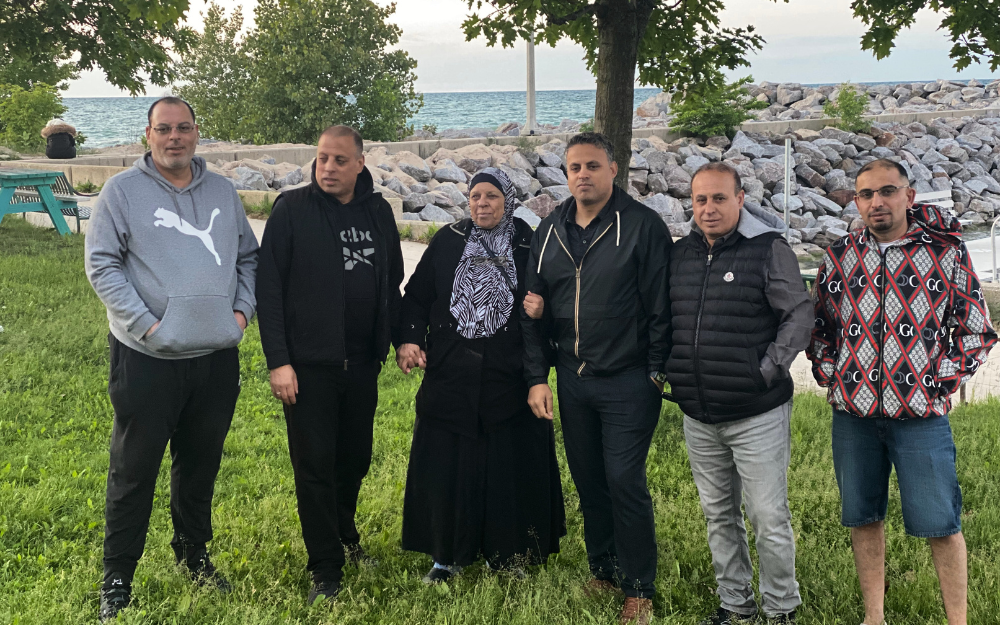
Milwaukee’s Abu Shawish family closely tracks casualties among their big family in Gaza. Brothers Bassam, Sargon, Yasser and Mhammad Abu Shawish flank their mother Fatemeh. Mhammad’s son-in-law Yahia Sarhan, far right.
Mhammad Abu Shawish, 60, of Milwaukee sat in front of a big screen TV in his living room, captive to images of carnage in Gaza. His internet TV service brings live reporting from Al Jazeera and other Arabic-language, Middle East-based television networks. He sees seemingly endless footage of distraught Palestinians crying over bodies, severed and bloody, and volunteers carrying lifeless children recovered from collapsed buildings.
A week ago, Reuters reported the Palestinian death toll in the then five-week Israeli bombardment on Gaza surpassed 11,000.
“I’m watching every little detail, every airstrike,” Abu Shawish told Wisconsin Muslim Journal in an interview Wednesday. “All of it is upsetting. It doesn’t matter if they are immediate relatives or other innocent people, it hurts us. We are all related as human beings.”
Abu Shawish, who left Gaza when he was 4 years old and is now a U.S. citizen, worries about his family there. “We’re between 2,000 and 3,000 people in our family all across the Gaza Strip, from the south to the middle and the north. I have my sister and her family, uncles, aunts, nephews, nieces and cousins all over Gaza.”
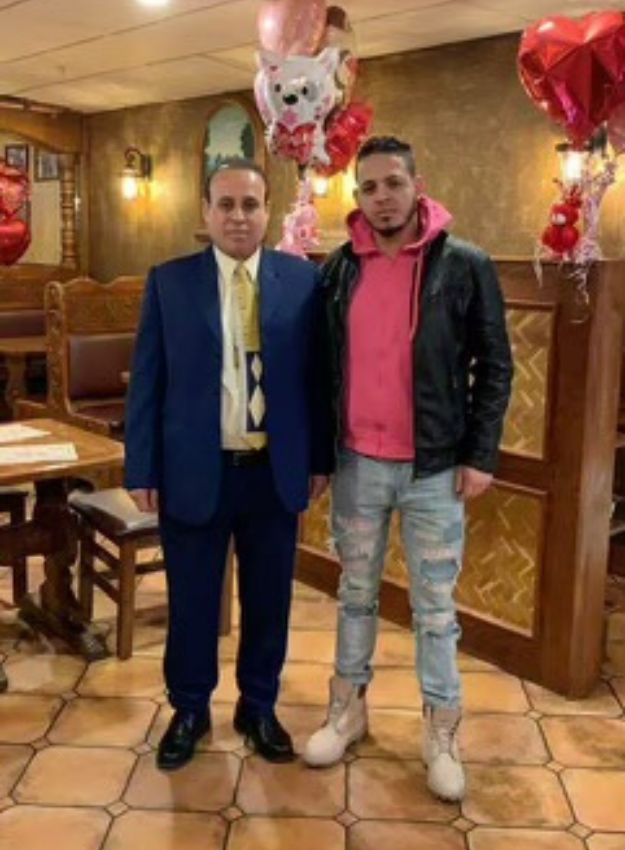
Mhammad Abu Shawish and son Mutaz in happier times.
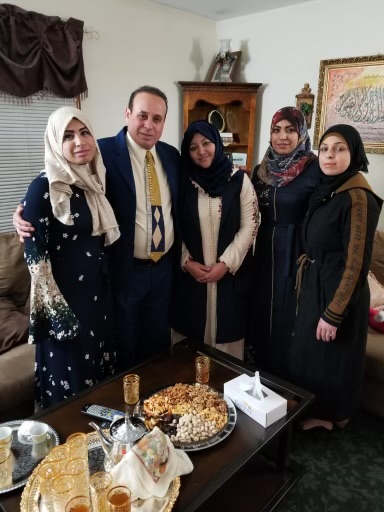
Mhammad Abu Shawish, daughter Hiba, wife Hanan, and daughters Ohoud and Alaa
Condolences posted on his Facebook feed alert him to the deaths of family members.
“Among the first casualties, I lost my cousin Omar on Oct. 7,” Abu Shawish said. He heard Omar had been hit by flying debris when walking to work. He was a teacher at a United Nations school.
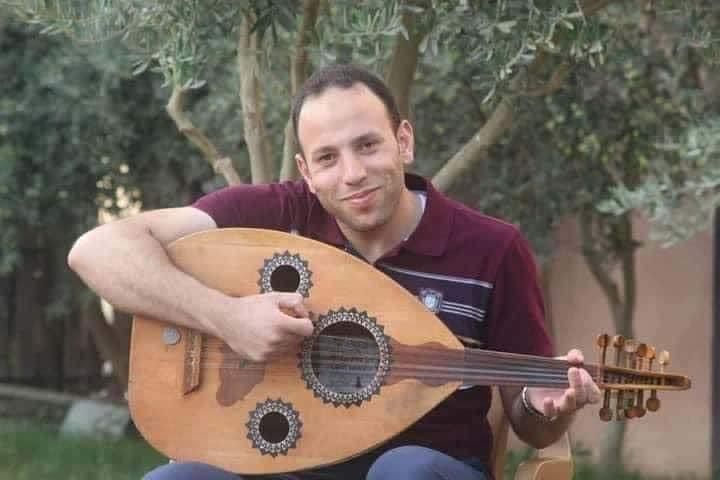
Omar Abu Shawish had been a teacher, writer, activist and volunteer
Omar was in his 30s when he died. Married, he had one son and two daughters. “He was an outspoken person who was an activist in organizations taking care of refugees, orphans and low-income people,” Abu Shawish said. “He volunteered, helping people in need in many aspects.”
Abu Shawish has not been able to return to Gaza and never met Omar face-to-face. They kept up with each other through family social media groups and spoke together on the phone from time to time. Omar was a writer. Abu Shawish spoke with him last year about an idea for a book and movie about Abu Shawish’s life. They had looked forward to working on it together, he said.
Facebook soon brought more bad news. Condolences appeared for Abu Shawish’s first cousin and his family.
“We have matching names – Mhammad Abu Shawish. His dad and mine are brothers,” he explained.
A destructive Israeli airstrike in Al Nuseirat refugee camp in central Gaza killed Abu Shawish’s first cousin and wife, two sons, daughter, daughter-in-law and two grandchildren. “They were all at home when it was hit. None of them made it,” he said.
“He contacted me two days before he died. We had a 21-minute conversation. He talked to my mother and my cousin here, and to my family. We asked them to be steadfast and strong. We told them hopefully soon we will have a resolution and things will get better.”
Since then, Abu Shawish heard of two other family members who have been killed—his cousin Faiq Abu Shawish worked in a mosque in Al Nuseirat camp, where he called for and led prayers. A bomb destroyed the mosque and killed him, Abu Shawish said.
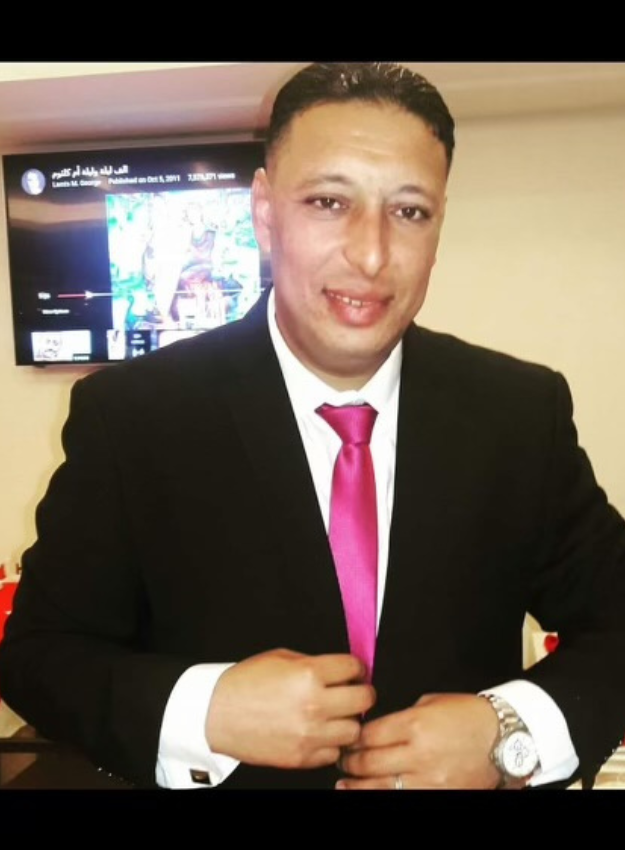
Rami Abu Shawish died in a bombing in Jabaliya refugee camp.
“And this week I learned I lost another cousin, Rami Abu Shawish. Rami had been in Turkey and had just returned to Palestine to be with his family a month before all this started. He died in a bombing in Jabaliya in the north. He was the only one at home at the time. His wife and children were visiting with her family when it happened.”
Hard to connect
The internet no longer offers a means for checking on family, Abu Shawish said. “People in the north and middle of Gaza don’t have much internet access. Sometimes they get a bit but not enough to make a phone call.” Occasionally, relatives in Gaza will text or update a post, he said.
Abu Shawish recently purchased phone service with a plan that allows him to make landline and cell phone calls, even when they don’t have internet in Gaza. “Provided the phone network is there,” he added. “I couldn’t get through to my sister for two weeks.”
Relatives told him phone towers in the north and middle Gaza were hit so there’s no phone service in those areas, he said.
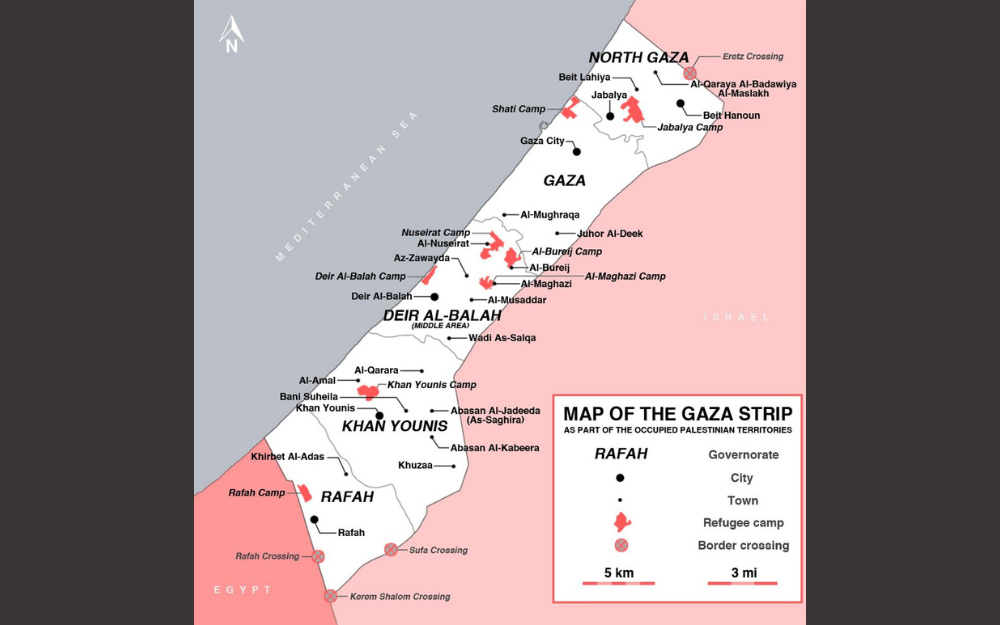
Map graphic courtesy of Mapsland
“We call family in Rafah in the south and ask them for the updates they have on everybody,” he said. “After we open the international line, if we dial 972, the code for Israel. The code for Palestine, the occupied territory, is 970. Calls to that area code don’t work at all.”
What he hears when he does reach someone is more bad news, Abu Shawish said. “They don’t have food, electricity, medications, water—they don’t have anything. On top of that, they hear planes overhead and they are living with the fear that at any time Israel could attack.
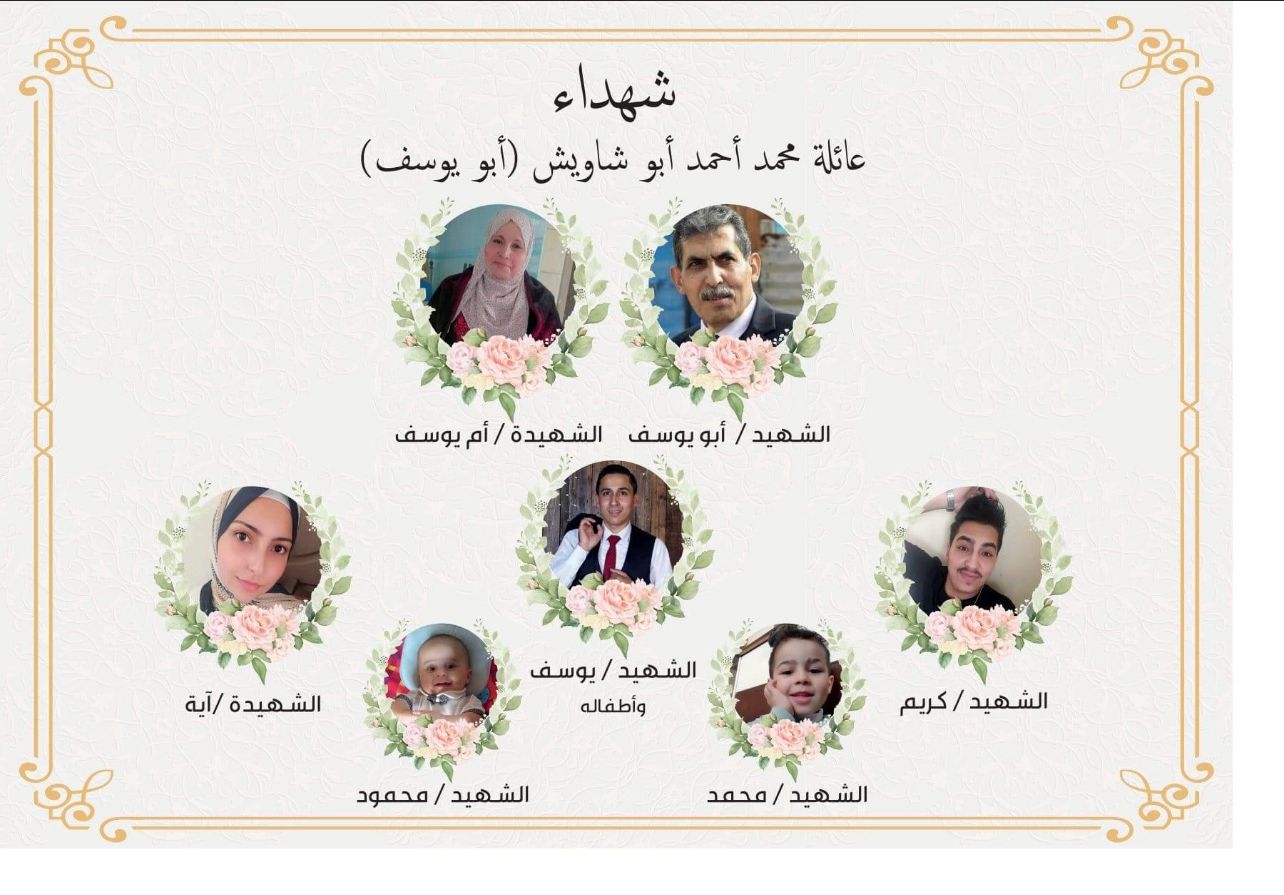
“We’re feeling sad. We are feeling very disappointed from the world and from the United States in particular. Since the conflict began in Palestine in 1948, U.S. administrations, Republicans and Democrats, have failed us. The people in Gaza are suffering. How long are we going to support the oppressors?
“It’s a shame our media don’t bring us all the truth about what is happening in Gaza. Their reporting is very one-sided. I hope that we can reach more Americans with the stories of the pain and killing that is happening. We need to get their attention so they can hear these stories with open hearts.”
